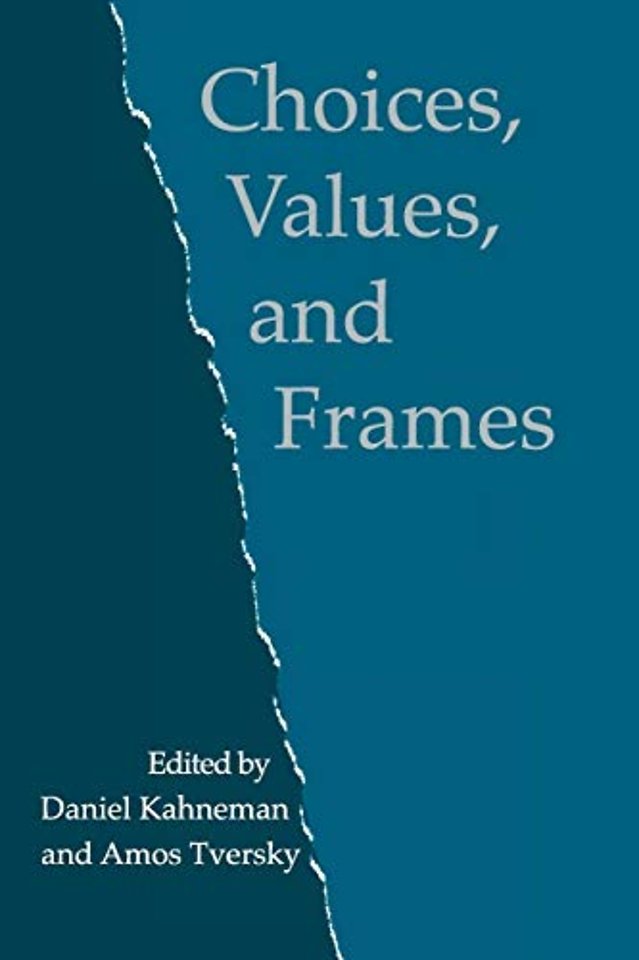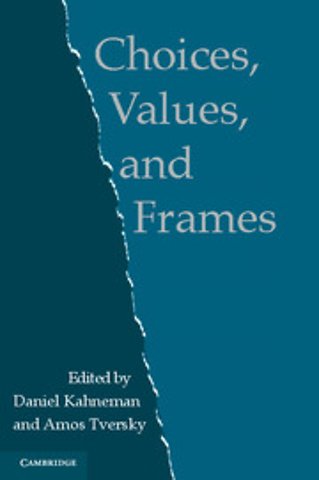1. Choices, values, and frames; Part I. Prospect Theory and Extensions: 2. Prospect theory: an analysis of decision under risk; 3. Advances in prospect theory: cumulative representation of uncertainty; Part II. The Certainty Effect and the Weighting Function: 4. Compound invariant weighting function in prospect theory; 5. Weighing risk and uncertainty; 6. A belief-based account of decision under uncertainty; Part III. Loss Aversion and the Value Function: 7. Loss aversion in riskless choice: a reference-dependent model; 8. Anomalies: the endowment effect, loss aversion, and status quo bias; 9. The endowment effect and evidence of nonreversible indifference curves; 10. A test of the theory of reference-dependent preferences; Part IV. Framing and Mental Accounting: 11. Rational choice and the framing of decisions; 12. Framing, probability distortions, and insurance decisions; 13. Mental accounting matters; Part V. Applications: 14. Toward a positive theory of consumer choice; 15. Prospect theory in the wild: evidence from the field; 16. Myopic loss aversion and the equity premium puzzle; 17. Fairness as a constraint on profit seeking: entitlements in the market; 18. Money illusion; 19. Labor supply of New York City cab drivers: one day at a time; 20. Are investors reluctant to realize their losses?; 21. Timid choices and bold forecasts: a cognitive perspective on risk taking; 22. Overconfidence and excess entry: an experimental approach; 23. Judicial choice and disparities between measures of economic values; 24. Contrasting rational and psychological analyses of political choice; 25. Conflict resolution: a cognitive perspective; Part VI. The Multiplicity of Value: Reversals of Preference: 26. The construction of preference; 27. Contingent weighting in judgment and choice; 28. Context-dependent preferences; 29. Ambiguity aversion and comparative ignorance; 30. The evaluability hypothesis: explaining joint-separate preference reversals and beyond; Part VII. Choice over Time: 31. Preferences for sequences of outcomes; 32. Anomalies in intertemporal choice: evidence and an interpretation; Part VIII. Alternative Conceptions of Value: 33. Reason-based choice; 34. Value elicitation: is there anything in there?; 35. Economists have preferences, psychologists have attitudes: an analysis of dollar responses to public issues; Part IX. Experienced Utility: 36. Endowments and contrast in judgments of well-being; 37. A bias in the prediction of tastes; 38. The effect of purchase quantity and timing on variety-seeking behavior; 39. Back to Bentham? Explorations of expereiences utility; 40. New challenges to the rationality assumption.








